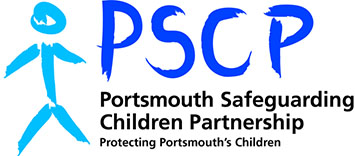Multi-agency learning – thematic deep dives
Deep dives have a specific focus on a particular area of multi-agency practice and procedure, such as responses to child exploitation, mental health, domestic abuse, missing from home and care. They are detailed in nature and consider a number of different aspects of multi-agency practice and procedure.
The PSCP seeks to assure itself that partnership work to safeguard children is good quality; keeps children happy, healthy, achieving and safe; improves outcomes and makes a difference; and is carried out by well-informed skilled practitioners who are properly supported by line managers, organisations and the wider partnership arrangements.
A deep dive is one approach the PSCP uses to carry out this assurance and is underpinned by our Learning and Improvement Framework. The deep dives ensure that the Partnership has a view across a child’s journey, but with a focus on the effectiveness of safeguarding (i.e. early help, children in need, child protection and looked after children).
The PSCP aims to complete 2 to 3 deep dives each year, their focus is determined from a range of sources including:
- the findings of national or local safeguarding children practice reviews
- priorities agreed within the PSCP business plan
- areas of concern emerging from practice, performance data and local information
Once the Executive Committee has agreed the theme, the Monitoring, Evaluation & Scrutiny Committee (MESC) is then responsible for developing the terms of reference overseeing the components of the deep dive and for drafting a report summarising the learning from it.
A deep dive then consists of the following components:
- Multi-agency case audit – a cohort of 8-10 children will be selected at random who have received support in relation to the theme being considered. These will include as appropriate cases from early help through to statutory safeguarding and those recently stepped-up or stepped-down. Their records will then be audited by a panel of multi-agency representatives against an agreed audit tool
- Voice of the child and parent/carers – a cohort is identified where the family have had support for the issue being considered in the deep dive. The lead professional will be asked to contact the family to ask for their consent for a member of the PSCP team or Partnership to call them to gain their perspective and views of the support they received from services.
- Practitioner survey – a questionnaire will be sent to the staff within organisations which offer support to families relevant to the theme of the deep dive. The survey will seek practitioner views on issues such as:
- Tools
- Resources
- Training
- Policies and procedures
- Learning from case review – The learning from reviews completed by the Learning from Cases Committee within the last 12 months, where the theme has been a factor, will be considered. MESC will also consider the learning from any national reviews on this theme that have been published in the previous year.
- Multi-agency data – any relevant indicators within the PSCPs multi-agency dataset will be reviewed to identify any themes or trends relating to the theme over the last year. The Partnership will also be asked to contribute any intelligence from their own organisations data that is relevant.
- Single agency audit – Each PSCP partner will be asked to share any learning from audit activity within their service over the previous twelve months, focussing on theme being considered. This may be auditing cases or audit against protocol and processes
- Workshop or conference-style event – Once the first 6 steps have been completed, MESC will analyse the findings from these and draft a summary of the initial learning. A multi-agency event will then be held with senior and strategic managers from relevant organisation. The event will aim to both educate and seek further views. The initial learning from the deep dive will be shared and speakers will be invited who can share best practice either from research or practice in other areas. Participants will be asked for their input on future actions and recommendations to be incorporated into the final deep dive report to the PSCP.
Each deep dive will take approximately 3 to 4 months to complete. Once the learning has been agreed by the Executive Committee it will be shared with the wider Partnership and published on this website.
If, during the course of the deep dive, there are concerns about the immediate risk to a child or adult, or unsafe practice is raised, information is escalated to the respective appropriate agency lead for action.
Following completion of the deep dive process, the Monitoring, Evaluation & Scrutiny Committee (MESC) will produce an anonymised summary report highlighting areas which are working well, areas for development, identified themes and recommendations. The report will be shared with the Partnership for consideration and sign off.
Once agreed, an action plan will be developed and the monitoring of organisations progress against the recommendations will be overseen by MESC.
The PSCP Team will then produce a deep dive learning summary which is placed on the PSCP website to be disseminated across the workforce. The PSCP training team will also review the learning from the deep dive and ensure that any relevant messages are incorporate into the appropriate safeguarding course.
